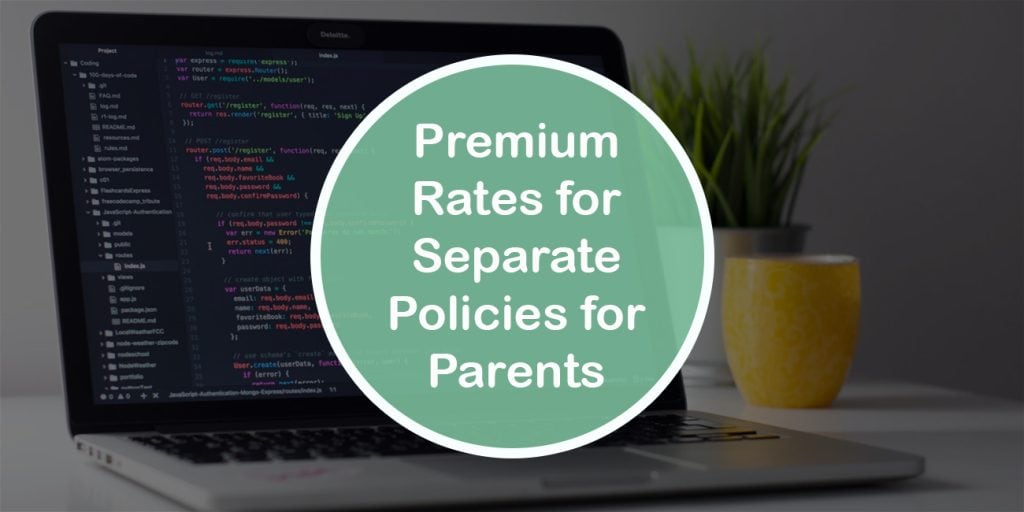As parents age, their healthcare needs often become more complex, making health insurance for parents a critical component of family financial planning. Health insurance policies are designed to provide peace of mind, ensuring that in times of medical need, families are not burdened by the potentially high costs of treatment. However, pre-existing conditions such as diabetes, hypertension, or heart disease—common in elderly individuals—can affect the premium rates for separate policies taken out specifically for parents. Understanding how these conditions influence premiums can help families make informed decisions when selecting health insurance plans for family members, balancing the need for comprehensive coverage with cost considerations.
What are Pre-existing Conditions?
Pre-existing conditions refer to medical conditions that existed before the policyholder applied for insurance, whether diagnosed or undiagnosed. These conditions indicate a higher risk to insurers since individuals with health conditions are more likely to make claims for treatment, medicines, and hospitalisation. As a result, insurers often increase the premiums for medical insurance plans that cover individuals with pre-existing conditions, ensuring they have adequate funds to cover any future claims. Health insurance for parents, therefore, tends to be priced higher when they have known health issues, with premiums reflecting the likelihood of frequent doctor visits, hospital stays, or ongoing treatment.
How Do Pre-existing Conditions Impact Premiums?
In family health insurance plans, premiums are typically lower because the risk is spread across multiple members, and not all may have the same level of medical needs. However, when it comes to securing individual policies specifically for parents with pre-existing conditions, families often find that premiums increase significantly, especially as the conditions become more severe or if multiple conditions are present.
For example, the cost of a standalone health insurance policy for a parent with both diabetes and high blood pressure may be notably higher than a policy for someone without such conditions. However, some insurers, like Niva Bupa Health Insurance, offer specialised plans for senior citizens that aim to balance comprehensive coverage with manageable premium rates, addressing the unique needs of older adults while also considering affordability.
What to Keep in Mind?
An important aspect to consider in health insurance for parents is the waiting period associated with pre-existing conditions. Most health insurance policies set a waiting period, typically between two to four years, during which expenses related to pre-existing conditions are not covered. For families looking to enrol their parents in health insurance, it is advisable to plan ahead to account for this waiting period, as coverage for these conditions only becomes available after the waiting period is completed.
Early planning allows families to choose the best possible policies for their parents without facing unexpected exclusions during the initial years. In some cases, insurers also offer the option to reduce the waiting period by paying an additional premium, which can be helpful if immediate coverage is essential.
In cases where parents have extensive or high-risk medical histories, families sometimes find it more beneficial to select separate medical insurance plans instead of a family health insurance plan. Separate policies allow for customised coverage that caters to each parent’s unique health profile rather than a one-size-fits-all approach. This way, families can select plans with higher coverage limits and tailored benefits for each parent, particularly if one parent requires more intensive or regular medical care than the other. However, it’s essential to review the policy options carefully to ensure they meet both medical and financial needs over the long term.
Final Words
Choosing the right health insurance policy for parents with pre-existing conditions may feel challenging, but it ultimately provides financial security and ensures access to quality healthcare. Although premium rates tend to be higher, the peace of mind that comes from knowing parents are covered for both routine care and emergencies is invaluable. Insurers like Niva Bupa Health Insurance offer flexible and specialised plans designed to cater to elderly policyholders, making it easier for families to find affordable yet comprehensive coverage.
By carefully considering the implications of pre-existing conditions, comparing policies, and choosing plans that best align with both medical needs and budget constraints, families can secure dependable health insurance for their parents, strengthening the foundation for lifelong health and well-being.
